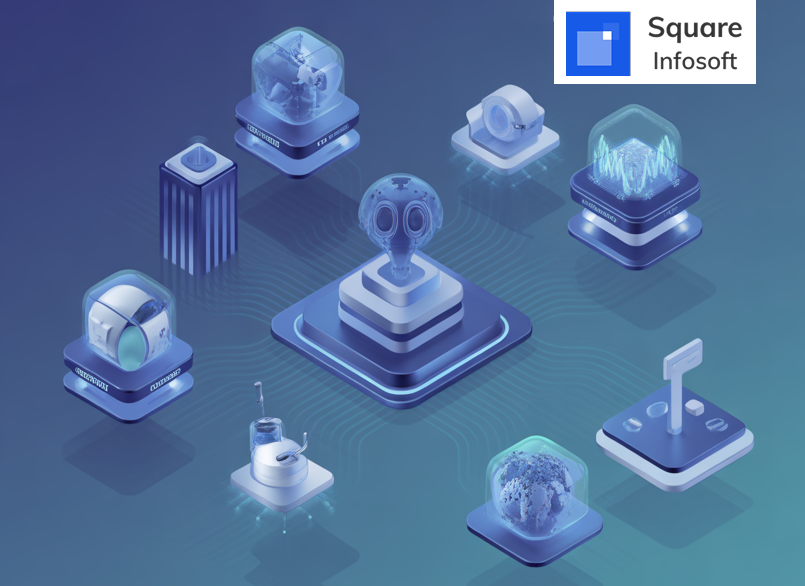The real estate industry has been revolutionized by AI-powered platforms like Zillow, offering personalized property recommendations, virtual tours, and intelligent market insights. If you’re considering building an AI-driven real estate app in 2025, this guide covers everything from key features to tech stack and estimated costs.
Revolutionizing Real Estate with AI!

Key Features of an AI-Powered Real Estate App
1. AI-Powered Property Search
- Smart filters based on user preferences
- Personalized property recommendations
2. Virtual Tours & Augmented Reality (AR)
- 360-degree virtual home tours
- AR-based property visualization
3. AI-Based Property Valuation
- Machine learning models for accurate pricing
- Predictive market analysis
4. Chatbot & Voice Assistance
- AI-powered customer support
- Voice-enabled property search
5. Blockchain-Based Transactions
- Smart contracts for secure transactions
- Fraud prevention with decentralized ledgers
6. Mortgage & Financing Integration
- Loan eligibility calculators
- AI-based mortgage recommendations
7. Advanced Analytics & Market Trends
- AI-driven insights on property trends
- Predictive analytics for investment decisions
Technology Stack for an AI-Driven Real Estate App
Frontend Development
- React Native, Flutter (for cross-platform mobile apps)
- React.js, Angular.js (for web interfaces)
Backend Development
- Node.js, Django, or Ruby on Rails
- GraphQL or RESTful APIs
Database Management
- PostgreSQL, MongoDB, Firebase
AI & Machine Learning
- TensorFlow, OpenAI, PyTorch
- NLP for chatbot integration
Cloud Hosting & DevOps
- AWS, Google Cloud, or Microsoft Azure
- Kubernetes for scalability
Blockchain Integration
- Ethereum, Hyperledger for smart contracts
Step-by-Step Process to Build an AI-Powered Real Estate App
1. Market Research & Planning
- Competitor analysis (Zillow, Redfin, Trulia)
- Defining target audience and business model
2. UI/UX Design
- Wireframing and prototyping
- Designing an intuitive and user-friendly interface
3. AI Model Development
- Implementing machine learning algorithms for property recommendations
- Training AI for dynamic property valuation
4. Frontend & Backend Development
- Building scalable APIs
- Database integration and performance optimization
5. Blockchain & Security Implementation
- Smart contract setup for secure transactions
- Data encryption and cybersecurity protocols
6. Testing & Quality Assurance
- Performance and load testing
- AI model validation and user acceptance testing
7. Deployment & Maintenance
- Launching on app stores and web platforms
- Continuous updates and AI model improvements
Cost Estimation to Build an AI-Powered Real Estate App
| Development Phase | Estimated Cost (USD) |
|---|---|
| Market Research & Planning | $1,000 – $5,000 |
| UI/UX Design | $1,000 – $10,000 |
| AI Model Development | $5,000 – $10,000 |
| Frontend & Backend Development | $5,000 – $15,000 |
| Blockchain & Security | $2,000 – $10,000 |
| Testing & Deployment | $1,000 – $10,000 |
| Total Estimated Cost | $15,000 – $60,000+ |
Monetization Strategies for a Real Estate App
1. Subscription Model
- Premium access to exclusive property listings
2. Commission-Based Revenue
- Charging agents a percentage per transaction
3. Advertising & Sponsored Listings
- Paid promotions for real estate agents and developers
4. Lead Generation Fees
- Charging property sellers for verified leads
Conclusion
Developing an AI-powered real estate app like Zillow in 2025 requires a strategic approach, incorporating the latest technologies like AI, blockchain, and AR. By focusing on innovation and user-centric features, businesses can create a competitive real estate platform that enhances the home-buying experience.




